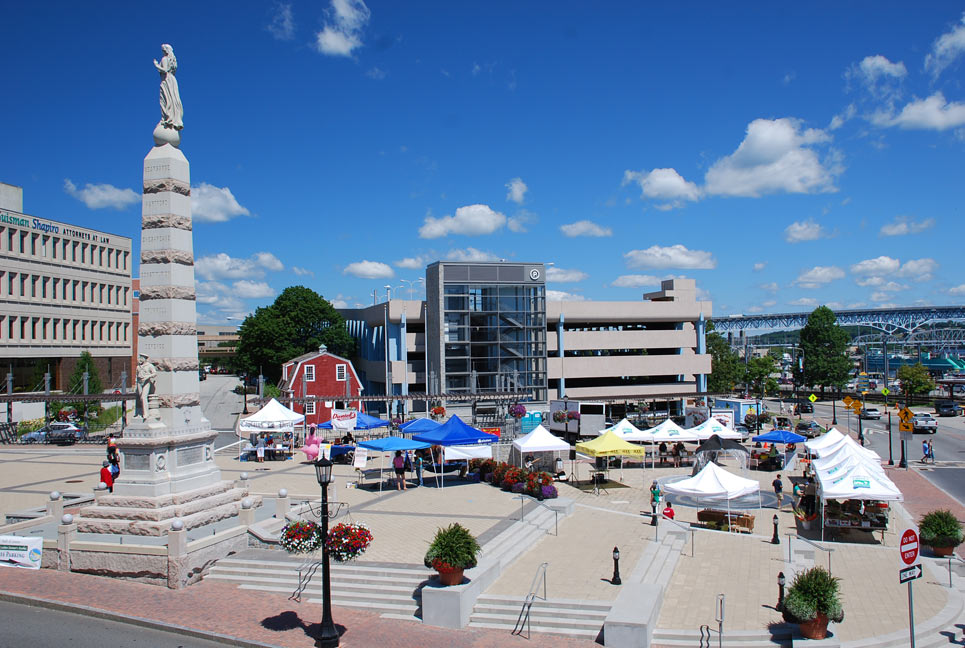
As the Affordability and Access Fellow for the New London County Food Policy Council (NLCFPC), it is my job to coordinate projects that combine both environmentally friendly initiatives with economically friendly policies, making fresh produce available at affordable prices to food insecure families. Currently I am working on developing a double value coupon program (DVCP) at several farmers markets in the county. Farmers markets are great places to get fresh, healthy produce while supporting local organic farmers, but we all know how expensive their fruits and veggies can be compared to supermarket prices. The DVCP is an effort to make this produce more affordable and available to individuals and families that receive benefits through the Supplemental Nutrition Assistance Program (SNAP).
First piloted by the Connecticut-based company Wholesome Wave in 2008, the double value coupon program doubles the purchasing power of SNAP users by providing funds to match any purchase made by a SNAP user at a farmers market. In other words, if a person buys $10 worth of produce on their SNAP card, the DVCP will give them another $10 worth of fruits or veggies. The funds to back this type of program are usually provided by an outside source, like Wholesome Wave or the NLCFPC, and then donated to participating markets. The funds will then be used to reimburse market vendors from whom DVCP purchases are made.
Our ultimate goal is to make farmers markets in New London County more equitable places by making the produce more affordable for food insecure individuals and families. In doing so, we also promote sustainable practices (buying fresh produce from local farmers rather than packaged and processed food from large supermarkets) across a broader range of socio-economic classes. The future of sustainable practices relies on everyone’s participation!